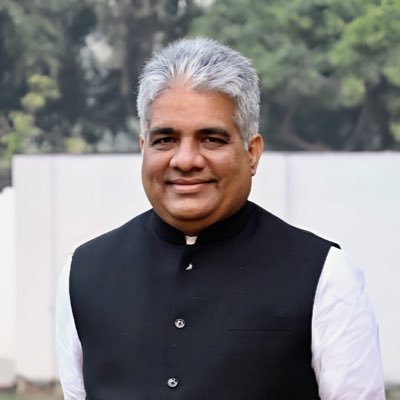Union Minister for Environment, Forest and Climate Change, Bhupender Yadav on Thursday chaired the 21st Steering Committee Meeting of Project Elephant at the Indira Gandhi National Forest Academy (IGNFA) in Dehradun. The meeting convened senior officials, scientists, and field experts from elephant range states, alongside representatives from key conservation institutions, to review the progress of Project Elephant and chart the future of elephant conservation in India.
A key focus of the meeting was addressing the ongoing challenge of human-elephant conflict, which poses significant risks to both human safety and elephant conservation. Yadav emphasized the critical need to involve local communities as active partners in wildlife conservation, particularly in regions heavily impacted by such conflicts. He stressed that effective management of human-wildlife conflict is essential for the success of conservation programs and called for improved working conditions and social security for frontline forest staff and ground-level conservation workers.
The Minister urged coordinated efforts with Indian Railways, the Ministry of Power, the National Highways Authority of India (NHAI), and mine developers to mitigate human-wildlife conflicts. He also highlighted the role of institutions like the Salim Ali Centre for Ornithology and Natural History (SACON), the Indian Institute of Forest Management (IIFM), the Wildlife Institute of India (WII), and State Forest Training institutions in implementing awareness and outreach programs. Additionally, Shri Yadav emphasized the importance of systematic data collection and analysis on elephant deaths due to railway accidents and the need for knowledge sharing among states, institutions, and experts to replicate best practices nationwide.
The meeting reviewed significant progress in conservation efforts, including the development of Regional Action Plans for human-elephant conflict in Southern and North-Eastern India and the completion of surveys covering 3,452.4 km of sensitive railway stretches, identifying 77 high-risk areas for mitigation. DNA profiling of captive elephants has advanced, with 1,911 genetic profiles completed across 22 states. Phase-I of the synchronized elephant population estimation in North-Eastern states has been completed, with over 16,500 dung samples collected. Work on the Model Elephant Conservation Plan (ECP) for the Nilgiri Elephant Reserve is underway and expected to be finalized by December 2025.
Several important documents were released during the meeting, including a report on measures to mitigate elephant-train collisions, a comprehensive study on 23 years of human-elephant conflict in Assam, Jharkhand, and Chhattisgarh, an advisory on safe tusk trimming practices for captive elephants, and the latest edition of Trumpet, Project Elephant’s quarterly newsletter.
Looking ahead, the Committee discussed preparations for World Elephant Day on August 12, to be celebrated in Coimbatore, Tamil Nadu, where the Gaj Gaurav Awards will be presented. Upcoming initiatives include finalizing the Nilgiri ECP, launching a three-year elephant tracking study in Bandhavgarh Tiger Reserve, conducting Management Effectiveness Evaluations (MEE) in Elephant Reserves with support from the Compensatory Afforestation Fund Management and Planning Authority (CAMPA), and developing an integrated conservation strategy for the Ripu-Chirang Elephant Reserve, with a focus on the Udalguri landscape.










